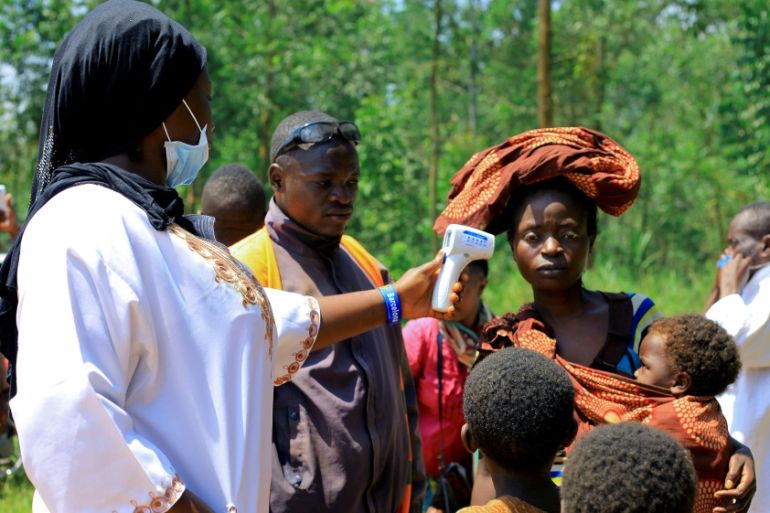DR Congo: Ebola claims 24 lives in one week
The rate of new Ebola cases has more than doubled after rebels forced response efforts to be briefly suspended.

At least 33 people have been infected with the deadly Ebola virus in the past week, 24 of which have since passed away, the health ministry of the Democratic Republic of Congo (DRC) said.
According to the ministry, the cases were discovered between October 8 and October 14.
Keep reading
list of 4 itemsUganda declares end of Ebola after 4-month outbreak
Uganda’s Ebola outbreak nearly under control, says Africa CDC
Ebola vaccines produced lasting antibodies during trial: Studies
So far, 211 confirmed and probable cases of Ebola have been reported since early July, when the latest outbreak of the disease started, the World Health Organization (WHO) has said.
Of those, 138 people have died from the highly deadly hemorrhagic fever.
All cases have been found in the northeastern region of the central African country, the WHO has stated.
The latest Ebola outbreak started in July and could go on for another three or four months, the WHO has said.
In recent weeks, the rate of new Ebola cases has more than doubled after rebel violence in northeastern DRC caused response efforts to be briefly suspended, health officials said earlier this week.
Most of the new cases have been in Beni, a city of several hundred thousand people, where experts had to suspend Ebola containment efforts for days after a deadly rebel attack killed 21.
The Congolese army has blamed the Allied Democratic Forces (ADF), a notorious rebel group, for that attack.
With multiple armed groups active in the region, health officials have said they are effectively operating in a warzone.
In a response to the violence, the government said it would deploy security forces to protect teams transporting the bodies of Ebola victims for burial
Earlier this week, the WHO noted that all of the health workers who have caught Ebola in this epidemic – 19 so far – have been infected outside of hospitals or clinics, meaning that the virus is spreading in the community.
Following the rapid increase in cases in northeastern DRC, the WHO also warned the disease might spread to neighbouring Rwanda and Uganda, adding that those countries are well prepared but have not yet approved the use of a vaccine.